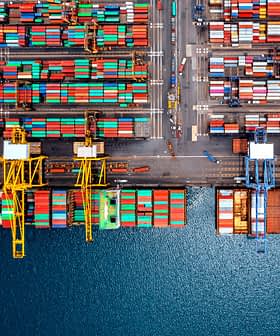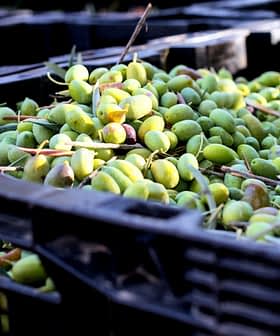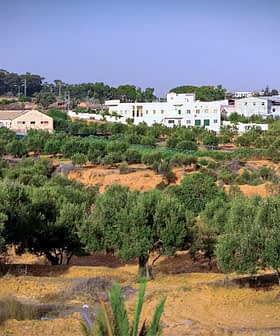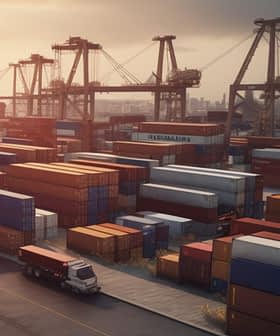World Olive Oil Exhibition Focuses on Doing Business in the U.S.
A theme of the two-day event in Madrid will be how to do business in the United States, the world’s top olive oil importer.
The World Olive Oil Exhibition in Madrid will focus on doing business in the United States, addressing issues such as quality expectations and trade barriers. Industry experts will discuss the challenges of entering the American market, the potential for growth, and the importance of educating consumers on olive oil quality.
More than 200 olive oil producers will gather in Madrid next month to check out competitors, do some business and discuss prevalent issues for the industry.
One of the overarching themes of the two-day World Olive Oil Exhibition (WOOE) will be how to do business in the United States, the world’s number one importer of olive oil.
The World Olive Oil Exhibition is an event mainly devoted to business and international stimulation of commercial contacts.
“The WOOE is an event mainly devoted to business and international stimulation of commercial contacts,” said Cristina Villar, a spokeswoman for the event. “What is most important about the fair are the substantial transactions of olive oil buying and selling carried out at a global scale.”
Maria Reyes, the director of category management at KeHE Distributors, will discuss the trade barriers, quality expectations and costs of importing to the U.S. She sees a lot of potential for exporters as long as they are ready to meet the challenges of the burgeoning market.
“In my opinion, the two biggest issues are that the market is flooded with cheap, poor quality bad tasting oil and that the consumer is still very confused as to what type of oil they should be buying,” she said.
Reyes said it is up to exporters and the olive oil industry as a whole to educate American retailers and consumers, so they make the best decisions about what products they are placing on their shelves.
Demand for high-quality oil is there, with premium olive oil sales increasing in the U.S. over the past half decade. However, the competition is steep with coconut oil, avocado oil and ghee also competing for a similar market niche.
“The right questions should be asked and there should be a verification process to ensure that what is being placed on the shelf is what the label says it is,” Reyes said. “The consumers play a large role in this and have demonstrated that they are willing to pay more for a quality product.”
Dave Neuman, CEO of Gaea North America, will follow Reyes and discuss how to navigate the complicated American bureaucracy once a company becomes a distributor in the States. In other countries, such as Argentina, olive oil producers can sell directly to retailers. However, for foreign companies branching out into the American market, this is not always possible.
“You don’t have that here in the U.S.,” Neuman said. “You have to have an importer or you have to have an office in the U.S. Then you have to sell to a distributor and then the distributor sells to the retailer and the retailer sells to the consumer. That is a lot of changing hands. It’s a lot of added cost.”
Neuman said it is important for foreign companies to understand these hurdles, so they can continue to compete in the United States’ growing market. He also will be assuaging the fears of Spanish companies with regards to the current administration’s trade policies.
President Donald Trump ran on an “America First” foreign policy with the goal of lowering the trade deficit. His administration has already imposed tariffs on Spanish table olives but has said it will not do the same with olive oil. Neuman believes that imported olive oil will remain tariff-free in spite of the administration’s tendency to change course on its original policy plans.
“California is such a small producer, providing less than eight percent of our US demand of olive oil, that it doesn’t really make sense to make a tariff on something that we have to have,” Neuman said.

“I haven’t heard anything to that effect because it’s not really protecting anyone. Olive oil is already expensive and I don’t think anyone is going to want to see an additional tariff to make the product even harder to use considering the health benefits and attributes of it.”
Other than discussing the American market at the WOOE, Neuman said he is looking forward to seeing how the olive oil sector can become more technologically advanced. He said that he would like to see the use of drones and drone spraying to combat the olive fruit fly as well as more automation in harvesting.
“I’d like to see there be a little bit more effort on automated harvesting for countries such as Greece and Italy that don’t really have the terrain to do it,” he said. “So I’m hoping we’ll see some robotics, something to help alleviate some of the stress of harvesting and also protecting the crop from olive flies.”
However, business will be at the forefront of many attendees’ minds as they crowd the Feria de Madrid on March 21 and 22. About 3,000 people attended the exhibition last year and Villar said she expects that number to be higher this time. Many of the attendees will be looking to make some deals as well as gain insight into the ever-changing world of global trade.
Santiago Botas, the general manager of the WOOE, said the exhibition presents an opportunity for everyone to take stock of what is going on in the olive oil world and prepare for the numerous challenges facing the industry.
“The serious situation facing the olive oil industry, together with a significant imbalance between supply and demand, low prices and decreasing subsidies requires the implementation of new mechanisms to promote a change in trends and a new trade order that is more open and transparent,” he said.
Neuman sees the exhibition as an opportunity to facilitate trade and find solutions to some of the industries problems.
“I think the expo is going to be exciting this year,” he said. “WOOE or not, the conversation about bringing quality oil to America has to continue.”









